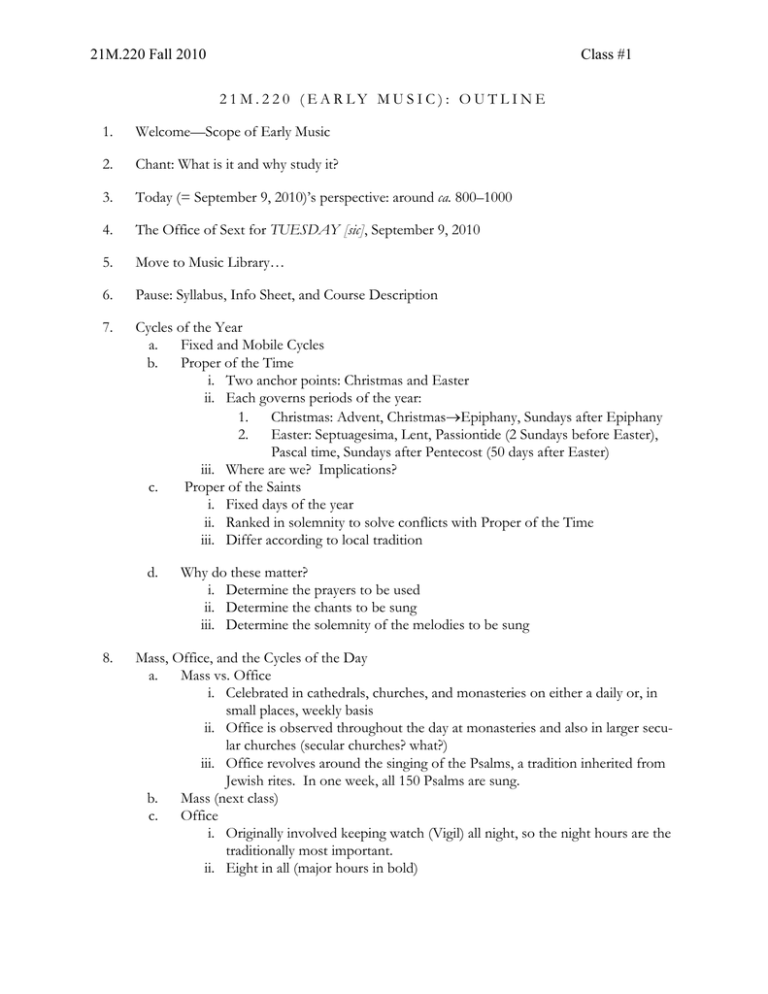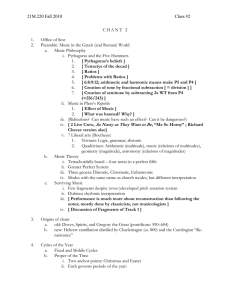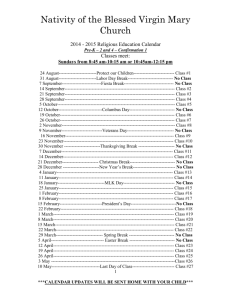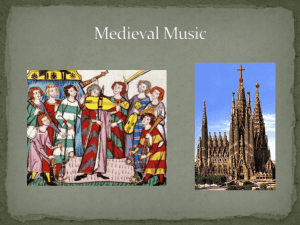21M.220 Fall 2010 Class #1
advertisement

21M.220 Fall 2010 Class #1 21M.220 (EARLY MUSIC): OUTLINE 1. Welcome—Scope of Early Music 2. Chant: What is it and why study it? 3. Today (= September 9, 2010)’s perspective: around ca. 800–1000 4. The Office of Sext for TUESDAY [sic], September 9, 2010 5. Move to Music Library… 6. Pause: Syllabus, Info Sheet, and Course Description 7. Cycles of the Year a. Fixed and Mobile Cycles b. Proper of the Time i. Two anchor points: Christmas and Easter ii. Each governs periods of the year: 1. Christmas: Advent, Christmas→Epiphany, Sundays after Epiphany 2. Easter: Septuagesima, Lent, Passiontide (2 Sundays before Easter), Pascal time, Sundays after Pentecost (50 days after Easter) iii. Where are we? Implications? c. Proper of the Saints i. Fixed days of the year ii. Ranked in solemnity to solve conflicts with Proper of the Time iii. Differ according to local tradition d. 8. Why do these matter? i. Determine the prayers to be used ii. Determine the chants to be sung iii. Determine the solemnity of the melodies to be sung Mass, Office, and the Cycles of the Day a. Mass vs. Office i. Celebrated in cathedrals, churches, and monasteries on either a daily or, in small places, weekly basis ii. Office is observed throughout the day at monasteries and also in larger secular churches (secular churches? what?) iii. Office revolves around the singing of the Psalms, a tradition inherited from Jewish rites. In one week, all 150 Psalms are sung. b. Mass (next class) c. Office i. Originally involved keeping watch (Vigil) all night, so the night hours are the traditionally most important. ii. Eight in all (major hours in bold) 1. Matins 1 After midnight 2. Lauds At daybreak 3. Prime 6 or 7 a.m. 4. Terce 9 a.m. 5. Sext noon 6. None 3 p.m. 7. Vespers Early evening (6pm?) 8. Compline Before bed (8pm?) iii. Times vary over course of the year because of length of days. 9. 1 Reading Modern Chant notation: Defining C 10. Types of chants: Melismatic, Neumatic, and Syllabic 11. Recitation and Chant not at the morning, as any French training you might have would suggest. MIT OpenCourseWare http://ocw.mit.edu 21M.220 Early Music Fall 2010 For information about citing these materials or our Terms of Use, visit: http://ocw.mit.edu/terms.




